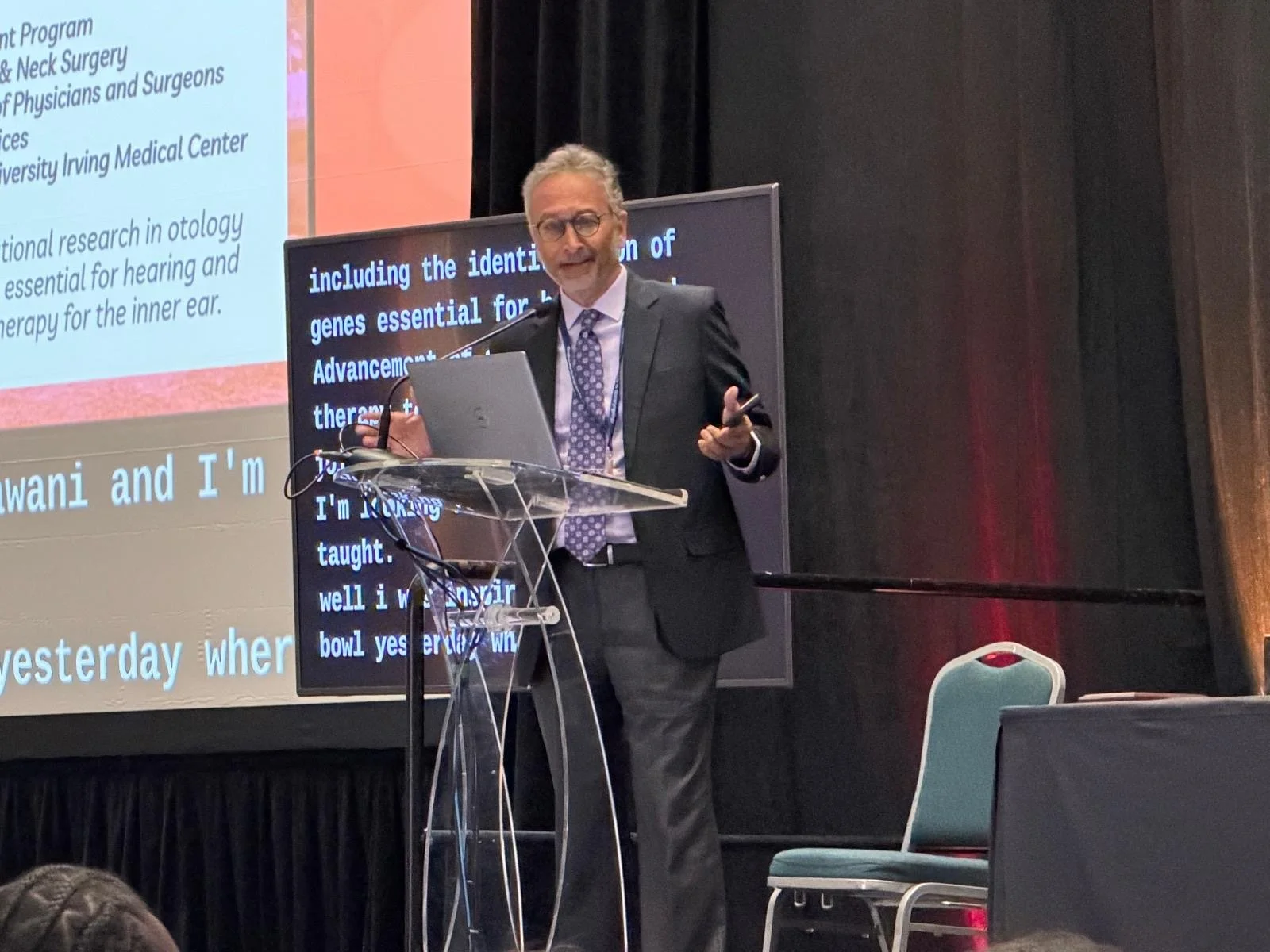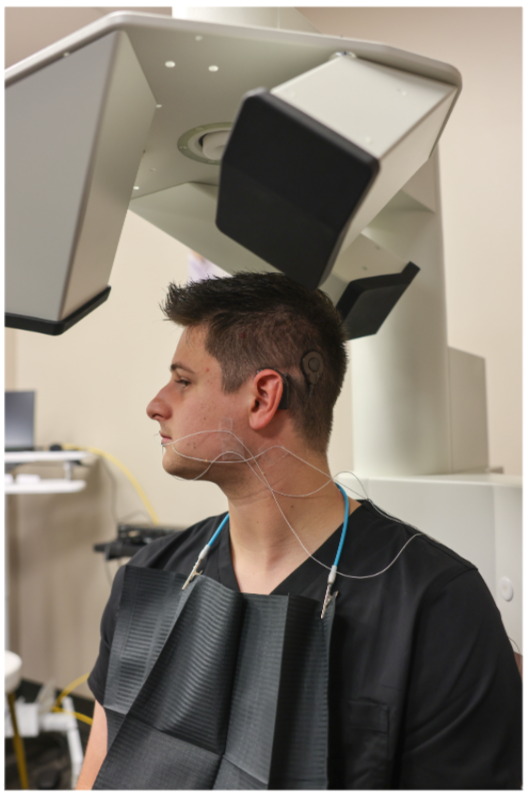By Kendra Swain
(Desplácese hacia abajo para ver una traducción al español de este artículo.)
As hearing healthcare evolves, audiologists are becoming more aware of “hidden hearing loss,” a condition that affects people whose hearing test results show typical hearing, but who experience significant difficulty understanding speech in noisy environments. Here we look at the latest research into hidden hearing loss, how it differs from typical hearing loss, and why it is a critical issue for audiologists to address in the coming years.
What Is Hidden Hearing Loss?
Hidden hearing loss refers to auditory damage that affects the synapses between hair cells and the auditory nerve, often caused by exposure to loud sounds. Unlike traditional hearing loss, which impacts the sensitivity of hair cells, this condition primarily affects the brain’s ability to process sounds, making it challenging to diagnose with standard hearing tests.
Why Is Hidden Hearing Loss Hard to Detect?
Standard audiograms (hearing tests) only measure the quietest sound a person can detect, but hidden hearing loss impacts sound clarity, particularly in complex auditory environments. Because of this, individuals with hidden hearing loss may have “normal” hearing on a typical audiogram but still struggle to comprehend speech, especially in noisy environments like crowded restaurants.
What Can Be Done to Diagnose and Treat Hidden Hearing Loss?
Currently, there is no standard clinical test for hidden hearing loss, but researchers are working on developing new diagnostic tools, including speech-in-noise tests and objective measures like otoacoustic emissions. Treatment options are still limited, though hearing aids with speech enhancement features or auditory training may help improve communication for those affected.
Hidden hearing loss represents a significant challenge in the field of audiology, especially as more individuals report difficulty in noisy environments despite having normal audiograms. By raising awareness and advancing diagnostic tools, audiologists can better address this emerging issue and provide more comprehensive care for patients.
A resident of Missouri, Kendra Swain has a master’s degree in biology and is exploring audiology degree programs. To learn more about hidden hearing loss, including a webinar by Hearing Health Foundation board member Sharon Kujawa, Ph.D., please click here.
Cómo abordar la pérdida auditiva oculta
Por Kendra Swain
A medida que evoluciona la atención médica auditiva, los audiólogos son cada vez más conscientes de la “pérdida auditiva oculta”, una condición que afecta a personas cuyos resultados de pruebas de audición muestran una audición normal, pero que experimentan dificultades significativas para comprender el habla en entornos ruidosos. Aquí analizamos las últimas investigaciones sobre la pérdida auditiva oculta, en qué se diferencia de la pérdida auditiva típica (o normal), y por qué es un problema crítico que los audiólogos deben abordar en los próximos años.
¿Qué es la pérdida auditiva oculta?
La pérdida auditiva oculta se refiere al daño auditivo que afecta las sinapsis entre las células ciliadas y el nervio auditivo, a menudo causado por la exposición a sonidos fuertes. A diferencia de la pérdida auditiva tradicional, que afecta la sensibilidad de las células ciliadas, esta condición afecta principalmente la capacidad del cerebro para procesar sonidos, lo que dificulta su diagnóstico con pruebas de audición estándar.
¿Por qué es difícil detectar la pérdida auditiva oculta?
Los audiogramas (pruebas de audición) estándar, solo miden el sonido más bajo que una persona puede detectar, pero la pérdida auditiva oculta afecta la claridad del sonido, en particular en entornos auditivos complejos. Debido a esto, las personas con pérdida auditiva oculta pueden tener una audición "normal" en un audiograma típico, pero aun así tener dificultades para comprender el habla, especialmente en entornos ruidosos como restaurantes llenos de gente.
¿Qué se puede hacer para diagnosticar y tratar la pérdida auditiva oculta?
Actualmente no existe una prueba clínica estándar para la pérdida auditiva oculta, pero los investigadores están trabajando en el desarrollo de nuevas herramientas de diagnóstico, incluidas pruebas de habla en ruido y mediciones objetivas como las emisiones otoacústicas. Las opciones de tratamiento aún son limitadas, sin embargo, los audífonos con funciones de mejoramiento del habla o el entrenamiento auditivo, pueden ayudar a mejorar la comunicación de las personas afectadas.
La pérdida auditiva oculta representa un desafío importante en el campo de la audiología, especialmente porque cada vez más personas informan sobre dificultades en entornos ruidosos, a pesar de tener audiogramas normales. Al generar conciencia y desarrollar herramientas de diagnóstico, los audiólogos pueden abordar mejor este problema emergente y brindar una atención más integral a los pacientes.
Kendra Swain, residente de Missouri, tiene una maestría en biología y está explorando programas de grado en audiología. Para obtener más información sobre la pérdida auditiva oculta, incluido un seminario web a cargo de la Dra. Sharon Kujawa, miembro de la junta directiva de la Hearing Health Foundation, haga clic aquí.
Traducción al español realizada por Julio Flores-Alberca, diciembre 2024. Sepa más aquí.







Our new public service announcement “Let’s Listen Smart” recognizes that life is loud—and it’s also fun. And the last thing we want to do is stop having fun! We just need to listen responsibly.